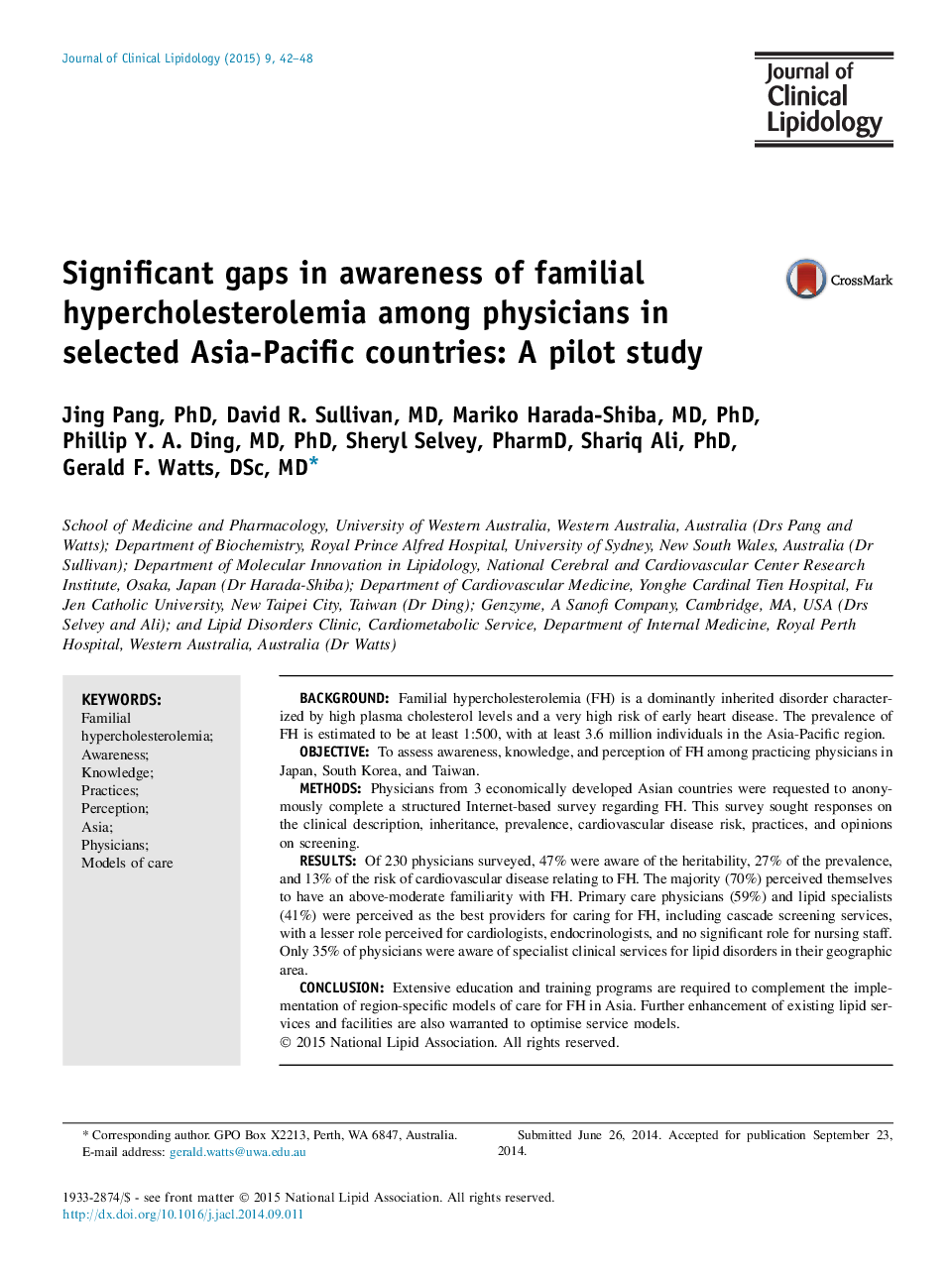| کد مقاله | کد نشریه | سال انتشار | مقاله انگلیسی | نسخه تمام متن |
|---|---|---|---|---|
| 5985506 | 1178776 | 2015 | 7 صفحه PDF | دانلود رایگان |
- Familial hypercholesterolemia (FH) is underrecognized, understudied, underdiagnosed, and undertreated in Asia.
- Shortfalls in knowledge and awareness of FH in physicians are identified.
- Professional interventions are required to close this important gap in cardiovascular disease prevention.
- Country-specific models of care are imperative to improve screening, diagnosis, treatment, and care of FH.
BackgroundFamilial hypercholesterolemia (FH) is a dominantly inherited disorder characterized by high plasma cholesterol levels and a very high risk of early heart disease. The prevalence of FH is estimated to be at least 1:500, with at least 3.6 million individuals in the Asia-Pacific region.ObjectiveTo assess awareness, knowledge, and perception of FH among practicing physicians in Japan, South Korea, and Taiwan.MethodsPhysicians from 3 economically developed Asian countries were requested to anonymously complete a structured Internet-based survey regarding FH. This survey sought responses on the clinical description, inheritance, prevalence, cardiovascular disease risk, practices, and opinions on screening.ResultsOf 230 physicians surveyed, 47% were aware of the heritability, 27% of the prevalence, and 13% of the risk of cardiovascular disease relating to FH. The majority (70%) perceived themselves to have an above-moderate familiarity with FH. Primary care physicians (59%) and lipid specialists (41%) were perceived as the best providers for caring for FH, including cascade screening services, with a lesser role perceived for cardiologists, endocrinologists, and no significant role for nursing staff. Only 35% of physicians were aware of specialist clinical services for lipid disorders in their geographic area.ConclusionExtensive education and training programs are required to complement the implementation of region-specific models of care for FH in Asia. Further enhancement of existing lipid services and facilities are also warranted to optimise service models.
Journal: Journal of Clinical Lipidology - Volume 9, Issue 1, JanuaryâFebruary 2015, Pages 42-48
